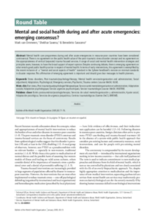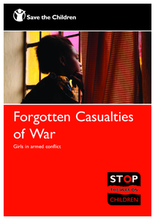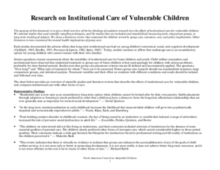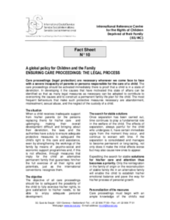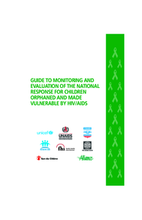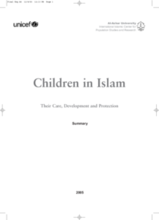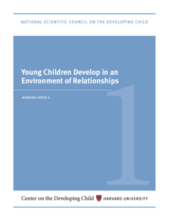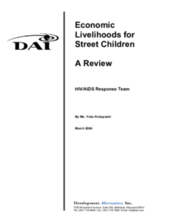Displaying 1291 - 1300 of 1343
A summary of the debate on the value of PTSD and trauma-focused care during and after acute emergencies. Argues for and outlines distinct intervention strategies to be considered for acute emergency and post-emergency phases.
Documents a unique survey on the impact of AIDS on populations of disabled people. Particular emphasis on identifying disability-specific concerns.
Examines child protection issues for young girls associated with armed groups. Provides comprehensive policy recommendations.
Describes and analyses abuse in institutional care using a case study of a home for girls in the developed world.
A brief literature review of the key findings of academic research into the effects of institutional care for vulnerable children. Contains information on the negative effects of institutional care.
A brief fact sheet on providing legal protection for children. Highlights the search for stable solutions, personalization of measures, procedural guarantees and care decisions.
A guide for governments, international organizations and NGO’s for measuring, monitoring and evaluating the national response for children orphaned and made vulnerable by HIV/AIDS.
An overview of child rights and protection as it relates to the central tenets of Islam. Contains brief information on alternative care, children affected by HIV/AIDS, protection from abuse, and other issues.
This working paper from the National Scientific Council on the Developing Child explains how adult-child relationships shape child development, and identifies ways to strengthen policies that affect those relationships in the early childhood years.
Presents lessons learned from livelihood strengthening initiatives for street children. Discussion of program design options and next steps for action and research.

